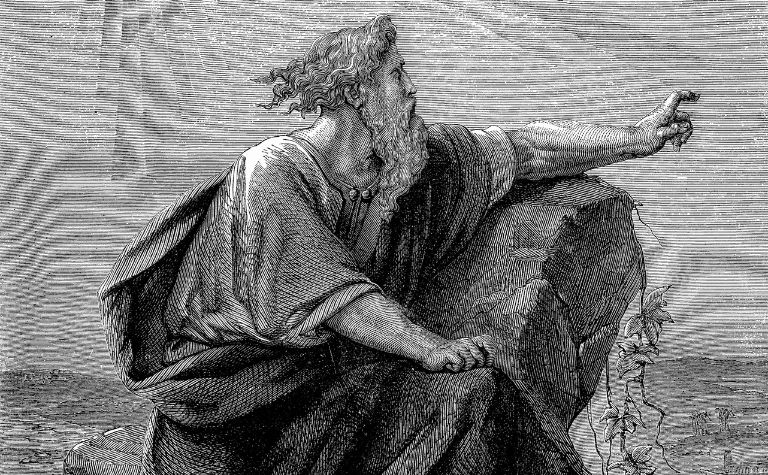Moses’ biography is one of the most fascinating and significant stories in the Bible. He is the main character in four books in the Old Testament (Exodus to Deuteronomy) like Jesus Christ is in the New Testament (Matthew to John). Because of Moses’ importance, Bible readers are interested in the details of his life, including the meaning of his name.
The sound of the name Moses is similar to the Hebrew word for “drawing out,” which refers to the unique circumstances of his birth according to Exodus. However, in Egyptian, the sound of his name is like the sound that signifies “son of” or “born of” (e.g., Thutmose, “born of Thoth”).
What were the circumstances of Moses’ birth? Is the meaning of his name Hebrew or Egyptian? Would Hebrew parents give him an Egyptian name? Would an Egyptian princess give him a Hebrew name? What did Pharaoh’s daughter know about the name Moses? Keep reading to learn the answers to these questions and others.
Also, the circumstances of Moses’ death are unique in the Bible. Discover how old Moses was when he died to get more understanding.

How Was Moses’ Named?
The Bible explains the meaning of Moses’ name in his birth story, found in Exodus 2:1-10. However, the circumstances surrounding his birth were unusual and dangerous. The trouble started when Israel’s population exploded near the end of its 400-year stay in Egypt.
Moses’ life as an infant was in danger
Exodus reports that the Israelites grew “fruitful and increased greatly; they multiplied and grew exceedingly strong, so that the land was filled with them” (Exod. 1:7b, ESV). Feeling threatened by an expanding slave class, the Egyptian Pharoah ordered the death of all male Hebrew babies (Exod. 1:16).
Moses’ parents, Amram and Jochebed, married (Exod. 2:1; cf. 6:20), and she became pregnant with Moses. “The woman conceived and bore a son, and when she saw that he was a fine child, she hid him three months” (Exod. 2:2). Jochebed hid Moses because Pharaoh’s decree marked him for death.
Jochebed, with the help of Moses’ older sister Miriam, enacted a plan to save his life. Ironically, it meant putting the boy in the path of Pharaoah’s daughter, setting him afloat in a basket at a place in the river where she often visited. (Exod. 2:3-5).
Pharaoh’s daughter finds Moses in a basket
The plan depended upon Pharaoh’s daughter being compassionate for the boy. “When she opened [the basket], she saw the child, and behold, the baby was crying. She took pity on him and said, ‘This is one of the Hebrews’ children'” (Exod. 2:6).
Then, Jochebed, without revealing her identity as Moses’ mother, weaned him. Then, when he was old enough, she returned him to Pharoah’s daughter (Exod. 2:7-10).
The meaning of Moses’ name comes from when Pharaoh’s daughter finds a boy floating in a basket in the river. Exodus 2:10 explains, “When the child grew older, [Jochebed] brought him to Pharaoh’s daughter, and he became her son. She named him Moses, ‘Because,’ she said, ‘I drew him out of the water.'”
| Hebrew word | משֶׁה |
| Part of speech | Proper noun |
| Transliteration | Mosheh |
| Pronunciation | mo-sheh’ |
| Occurrences | 764 times |
Also, many Bible readers know that God didn’t allow Moses into the Promised Land. Learn how Moses died to get more insight into the end of his life.

Is the Name Moses Hebrew or Egyptian?
Would an Egyptian princess know Hebrew? Most scholars say she didn’t. Did Jochebed, Moses’ Hebrew mother, lift him out of the water? No. Exodus 2:10 clearly states that Pharaoh’s daughter did. These facts lead many Bible readers to wonder how Moses got a Hebrew name.
Some Bible scholars argue that “Moses” is Hebrew. Others say it’s Egyptian in origin. Yet another perspective is that it’s both. Exodus scholar John L. Mckay writes, “There has been much learned speculation about the origin of Moses’ name. Is it Egyptian or Hebrew? The answer seems to be both.” [2]
The name Moses is Hebrew
The traditional understanding of the meaning of Moses’ name is that it sounds like the Hebrew word “to draw out,” as stated in Exodus 2:10. The Hebrews often named their children based on sound-like wordplay instead of an exact sound-match of an already-existing verb or noun.
The Theological Wordbook of the Old Testament explains, “In Hebrew the proper name ‘Moses’ is a Qal active participle (masculine/singular) of the verb masha “to draw (out)” or ” he who draws out.” [3] English Bibles often translate the Hebrew word masha (מָשָׁה) as “draw out” or something similar.
For example, in 2 Samuel 22:17, David says, “He sent from on high, he took me; he drew me out of many waters” (ESV, emphasis added). Another example is Psalm 18:16, which reads, “He sent from on high, he took me; he drew me out of many waters” (emphasis added).
The name Moses is Egyptian
This is also evidence that “Moses” is associated with the Egyptian language. This fact doesn’t necessarily mean that the name isn’t Hebrew but that its origin has more depth than it first appears.
Exodus commentator John I. Durham writes, “The name ‘Moses’ is the Hebrew equivalent of the Egyptian noun ms ‘boy-child,’ from the verb msi ‘bear, give birth.’ This word appears also in Egyptian names, as for example Ptahmose, Tuthmosis, Ahmose, and Harmose” (emphasis added).
He continues, “Moses’ name, thus transliterated from Egyptian, may very well be a memory, perhaps the most important and best-preserved memory, of the Egyptian backdrop of the oppression.” [1]
Also, Exodus reveals that Moses was born to Hebrew parents. Learn more about what tribe Moses was from in Israel to understand his background.

What Did Pharaoh’s Daughter Know About the Name Moses?
Based on Exodus 2:10, some scholars speculate that Moses’ name is Hebrew and that its association with the Egyptian language is incidental. Others argue that it’s Egyptian and that Exodus 2:10 is wrong. But what if there is another explanation? What if the Egyptian princess knew precisely what she was doing?
Bible scholar John Mackay raises this possibility. He writes, “It is quite likely that an Egyptian princess would have had some knowledge of the language of those who constituted a major population group in Egypt at that time. Possibly some of her attendants were enslaved Hebrews.”
Mackay continues, “The bilingual significance may have been what attracted the princess to the name. We should notice that his name is not given him at the earliest incident when he is taken out of the Nile, but years later. It was not bestowed hurriedly but was probably something the princess took time over.” [4]
Also, Moses was Hebrew but grew up in Egypt. This fact makes many Bible readers want to know what languages Moses spoke. See the article for more information.
References:
[1] Exodus by John L. Mckay. Mentor Bible Commentaries. p. 54.
[2] The Theological Wordbook of the Old Testament. p. 529.
[3] Exodus by John I. Durham. Word Biblical Commentary. p. 17.
[4] Mackay. p. 54.
Related Questions
Moses had one of the most interesting families in the Bible. He was born to Hebrew parents, yet the Pharaoh's daughter raised him. Moses' siblings, Aaron and Miriam, played critically important roles...
Bible readers remember Moses for learning God's name through a burning bush, parting the Red Sea using God's power, and receiving the 10 Commandments from God on Mount Sinai. He is also known for...
